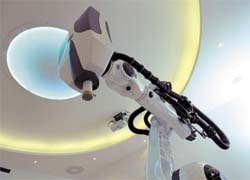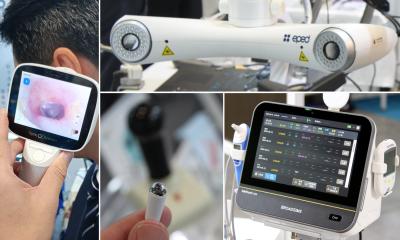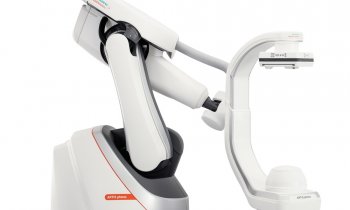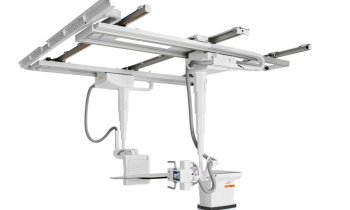CyberKnife radiosurgery progress
In its first year, 450 patients have been treated with CyberKnife - the unique Robotic Radiosurgery System.

Germany - The unique Cyberknife Robotic Radiosurgery System, which we have featured in European Hospital magazine in previous issues, has delivered 400 treatments in its first year of use, according to a report from the Cyberknife Centre, which operates with the collaboration with University Hospital Munich.
The system, the first on only one of its kind, was designed to treat tumours, anywhere in the body, with sub-millimetre accuracy, the maker reports. ‘Using image guidance technology and computer controlled robotics, the CyberKnife System is designed to continuously track, detect and correct for tumour and patient movement throughout the treatment. Due to its extreme precision, the system does not require invasive head or body frames to stabilise patient movement, vastly increasing the system’s flexibility. In the first year, 450 patients have been treated in the Cyberknife Centre, in Munich.
The main indications were brain and spine tumours. Just recently the centre began its’ breath triggered radiosurgical programme to also irradiate lung and liver tumours in a radiosurgical approach, which means a single session out-patient procedure that lasts about 1-2 hours. The indication for the procedure is discussed beforehand, with specialist surgeons and radiation oncologists. It can be an addition or alternative for a surgical procedure. Out-patient Cyberknife treatment does not lead to limitations in normal daily life. One day after the treatment the usual activities can be resumed.’
Further details:
www.cyber-knife.net
30.08.2006







